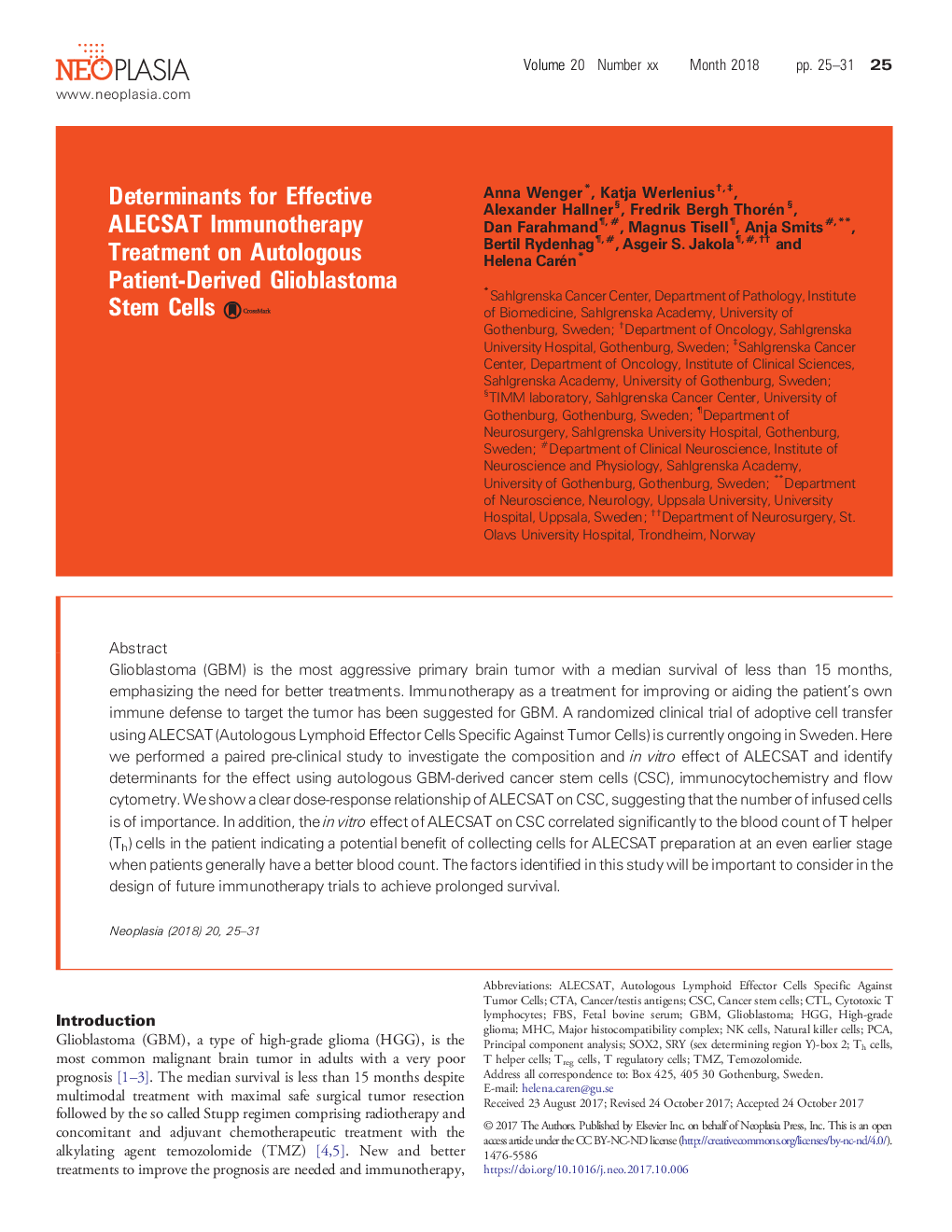| Article ID | Journal | Published Year | Pages | File Type |
|---|---|---|---|---|
| 8456854 | Neoplasia | 2018 | 7 Pages |
Abstract
Glioblastoma (GBM) is the most aggressive primary brain tumor with a median survival of less than 15 months, emphasizing the need for better treatments. Immunotherapy as a treatment for improving or aiding the patient's own immune defense to target the tumor has been suggested for GBM. A randomized clinical trial of adoptive cell transfer using ALECSAT (Autologous Lymphoid Effector Cells Specific Against Tumor Cells) is currently ongoing in Sweden. Here we performed a paired pre-clinical study to investigate the composition and in vitro effect of ALECSAT and identify determinants for the effect using autologous GBM-derived cancer stem cells (CSC), immunocytochemistry and flow cytometry. We show a clear dose-response relationship of ALECSAT on CSC, suggesting that the number of infused cells is of importance. In addition, the in vitro effect of ALECSAT on CSC correlated significantly to the blood count of T helper (Th) cells in the patient indicating a potential benefit of collecting cells for ALECSAT preparation at an even earlier stage when patients generally have a better blood count. The factors identified in this study will be important to consider in the design of future immunotherapy trials to achieve prolonged survival.
Keywords
HGGSRY (sex determining region Y)-Box 2TMZCSCSox2GBMCTACTLFBSPCAPrincipal component analysisTemozolomideCancer/Testis antigensfetal bovine serumTH cellsT regulatory cellsT helper cellsNK cellsTreg cellsNatural killer cellsCancer stem cellsCytotoxic T lymphocytesmajor histocompatibility complexMHCGlioblastomaHigh-grade glioma
Related Topics
Life Sciences
Biochemistry, Genetics and Molecular Biology
Cancer Research
Authors
Anna Wenger, Katja Werlenius, Alexander Hallner, Fredrik Bergh Thorén, Dan Farahmand, Magnus Tisell, Anja Smits, Bertil Rydenhag, Asgeir S. Jakola, Helena Carén,
